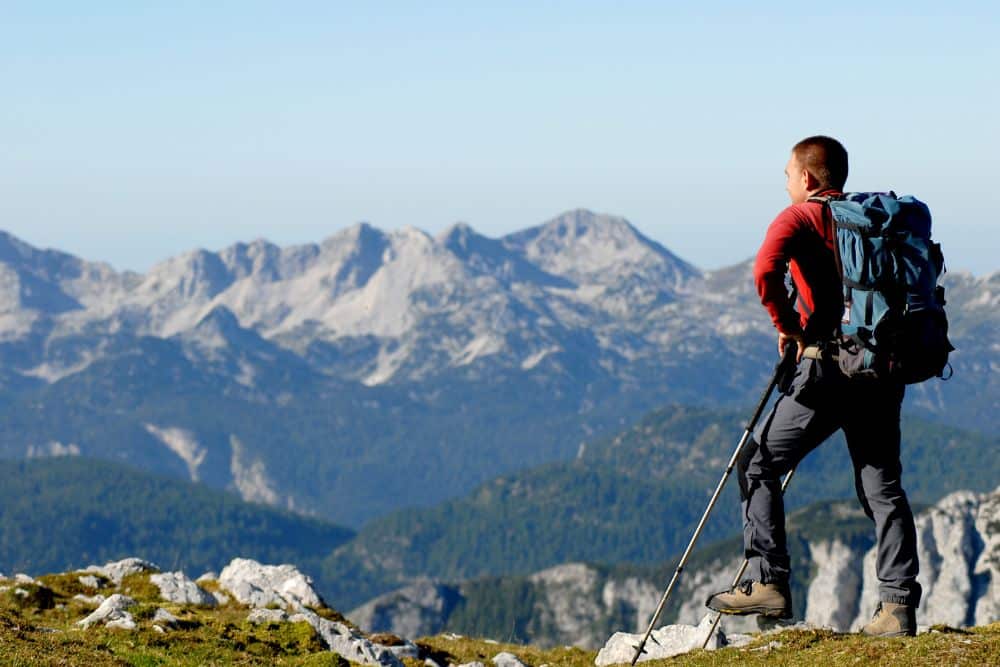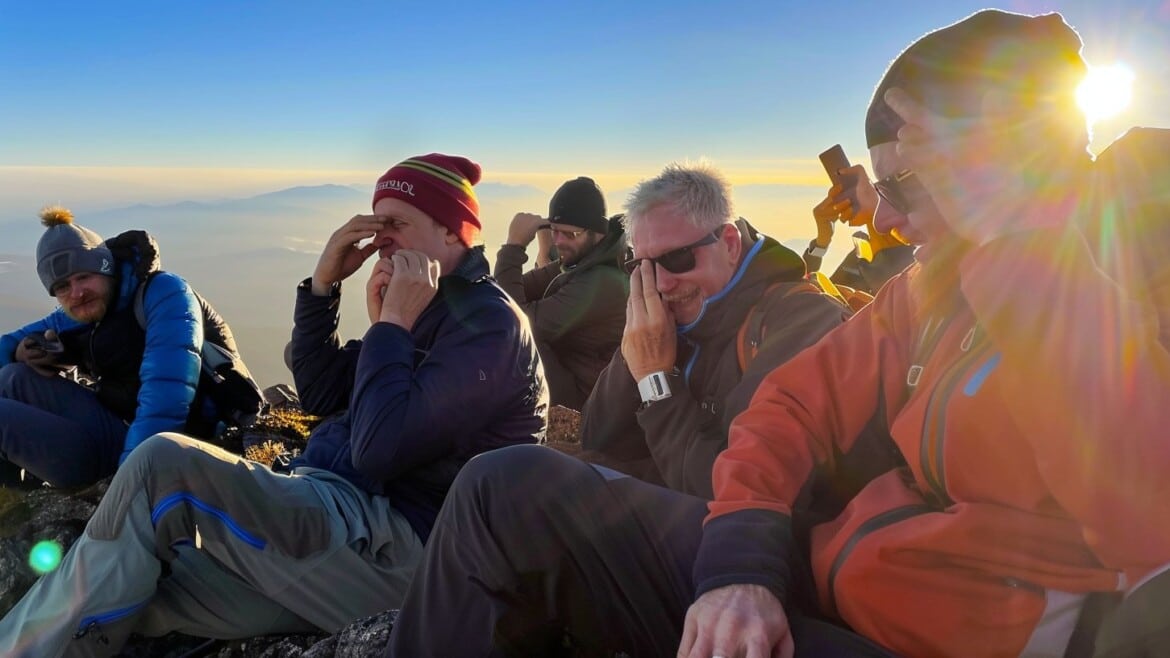Living at higher altitudes comes with unique health challenges. Altitude sickness affects many, causing symptoms like headache, fatigue, and nausea. This article offers strategies to prevent and manage these issues effectively.
Stay healthy in the mountains by reading on.
Key Takeaways
- Watch for early signs of altitude sickness, like headaches and feeling tired.
- Before going higher, spend time at a lower height to help your body get used to less oxygen.
- Drink lots of water and eat foods rich in carbs to avoid getting sick from the high altitude.
- If you start feeling very sick, go down to a lower place right away and see a doctor if needed.
- Protect yourself from the sun by wearing sunscreen and stay hydrated by drinking plenty of water.
Altitude sickness happens when you go too high, too fast. It can cause symptoms like headache, nausea, and trouble breathing if your body doesn’t get enough oxygen.
Symptoms to watch for
Watch for early signs of acute mountain sickness like headaches, feeling very tired, nausea, breathing hard, and trouble sleeping. These symptoms can come on when you are at high places because there’s less air to breathe.
If you or someone with you starts acting clumsy, has a really bad headache, feels chest pain that makes it hard to breathe, coughs up pink stuff, or throws up a lot, these are severe warnings.
They mean the body is having a tough time with the thin air.
Acute mountain sickness shows itself through headache, nausea, fatigue and shortness of breath.
Severe cases might lead to swelling in the brain or fluid in the lungs if not treated right away. This happens more often above 8,000 feet. The risk goes up fast as you go higher without giving your body time to get used to the new height.
Who’s most at risk?
After spotting the signs of altitude sickness, it’s vital to know who faces the highest risk. People living at low elevations moving quickly to high altitudes are in danger. Speedy climbs do not give the body time to adjust.
Young or old, age plays a role too. But those with certain health issues need extra caution. If you have obstructive sleep apnea, high blood pressure, heart failure, heart disease, pulmonary hypertension, or any chronic lung problems, high altitude can be more challenging for you.
Always talk to a doctor skilled in altitude medicine before heading up if you carry these conditions.
Visitors already dealing with these medical concerns should plan ahead. Quick ascents without expert advice put them at a higher risk of serious altitude sickness complications. Consulting healthcare professionals experienced in such matters is key for safe mountain experiences for individuals prone due to their health history or physical condition related to cardiovascular and respiratory systems.
Preventative Measures for Altitude Sickness

To stop altitude sickness, taking time to get used to the height slowly helps a lot. Drinking more water and eating food rich in carbohydrates are key steps before heading up higher.
Acclimatization strategies
Dr. Choi advises spending time at a lower elevation before heading to the mountains. This step helps your body get used to less oxygen slowly. Aim for one or two days at this middle ground.
Once you reach higher altitude, take it easy for the first few days. Your body needs this time to adjust without stress from hard activities.
Limit how much you do during these initial days. Rest is key to letting your body adapt without problems like headaches or feeling sick. By following these steps, you set yourself up for a healthier stay in high places where the air is thin.
Hydration and diet tips
Drink twice as much water in high places because the air is dry. You need at least eight glasses a day. This stops you from getting dehydrated. Eating bananas helps, too, because they have lots of potassium.
Eating more carbs and fresh fruits and vegetables makes you feel better up high. Avoid foods that are heavy and fried. These tips will help keep altitude sickness away.
Stay hydrated and eat right to fight off altitude sickness.
Coping with Symptoms at High Altitude
When you feel sick at high places, act fast to ease your symptoms. If things get worse, go see a doctor right away.
Immediate steps if symptoms appear
Drink lots of water and avoid alcohol to stay hydrated. Get plenty of rest. Move to lower elevations slowly if you start feeling unwell. Ease headaches with chamomile tea for relief.
Eating bananas can help too, as they are full of potassium, which fights altitude sickness symptoms. Take vitamins like AG1 Athletic Greens for extra nutrients your body needs at high altitudes.
Limit drinks with caffeine such as coffee or soda because they can dehydrate you. If resting doesn’t help and moving lower isn’t an option right away, seek a doctor’s advice without delay, especially if breathing becomes hard or the heart beats fast unexpectedly.
Always wear sunblock and sunglasses outside to protect against sunburn and eye damage from strong UV rays at higher elevations.
When to seek medical help
If symptoms of altitude sickness like a severe headache, chest tightness, or coughing up pink froth get worse, seek help right away. Go to St. John’s Health Urgent Care Clinic for mild to moderate illness and injuries.
For more critical signs such as losing coordination or vomiting, head to the emergency room immediately. Knowing where local medical clinics are and if they have emergency oxygen is key for safety in high-altitude areas.
Additional Health Risks in High-Altitude Areas

Living high up can also bring other health challenges. Things like colder weather and less air moisture can lead to risks such as freezing, dehydration, heart issues, and getting sick more easily.
Environmental factors and precautions
In high-altitude areas like Jackson Hole, low humidity and dry air are common. These conditions can lead to sunburn and dehydration. It’s vital to use sunscreen, lip balm with SPF, and drink plenty of water.
These steps help prevent damage from the sun and keep you hydrated during outdoor activities.
Safety gear is a must for hiking and skiing to avoid sports injuries. Sudden temperature changes also pose risks. Dressing in layers allows you to adjust to these changes, keeping warm or cool as needed.
This way, you stay safe while enjoying the mountains.
Breathe Easy at High Altitudes with Oxygen Now

OxygenNow provides essential support for managing altitude sickness, ensuring you enjoy your mountain vacation to the fullest. With our prompt delivery service and free medical consultations, we offer peace of mind and immediate relief from symptoms like headaches, nausea, and fatigue. Our medical-grade oxygen solutions, available with a prescription, are tailored to your needs, effectively combating altitude-related discomfort. Don’t let altitude sickness disrupt your adventure – trust Oxygen Now to help you breathe easier and make the most of your high-altitude experience.
For travelers encountering symptoms at higher elevations, OxygenNow offers a lifeline. Whether you’re hiking in Aspen or exploring Vail, our oxygen services are designed to alleviate discomfort and promote recovery, ensuring you stay healthy and active throughout your mountain getaway. With personalized care and expert advice, we stand ready to support you, ensuring altitude sickness doesn’t dampen your enthusiasm for the great outdoors.
Conclusion
Living at high altitudes comes with unique health challenges. Understand altitude sickness signs and who might get it easily. Quick actions can manage symptoms well. Stay hydrated, avoid alcohol and caffeine, eat more carbs, and move up slowly to prevent problems.
FAQs
1. What causes high-altitude sickness?
High-altitude sickness happens due to low oxygen levels in areas like Pikes Peak. Symptoms include headache, fatigue, and trouble sleeping.
2. How can I prevent altitude sickness?
To avoid altitude sickness, drink plenty of water, avoid caffeinated drinks as they dehydrate you, and gradually increase your altitude exposure. Taking Diamox as advised by a physician helps too.
3. Can existing medical conditions worsen at high altitudes?
Yes, conditions like COPD or cardiovascular diseases may get worse at high altitudes due to low oxygen and cold temperatures.
4. Are there specific supplements recommended for high-altitude living?
Taking Vitamin C and N-acetyl-cysteine supplements can help reduce symptoms of altitude sickness by improving your body’s response to lower oxygen levels.
5. What fitness advice is there for those living at high altitudes?
Start with light exercise and slowly increase intensity to improve your stamina without straining your body. Stay hydrated and monitor for any adverse reactions during workouts.
6. How does nutrition impact health at higher elevations?
Eating foods rich in electrolytes helps combat dehydration caused by the diuretic effect of higher elevations on the body.



